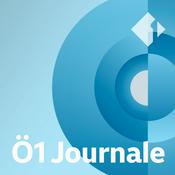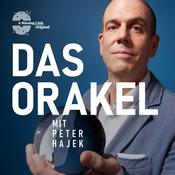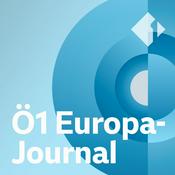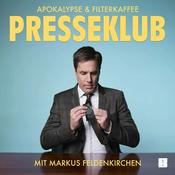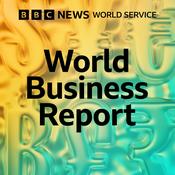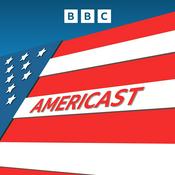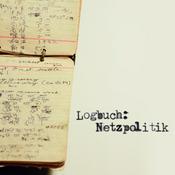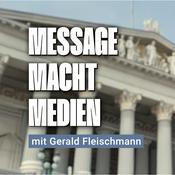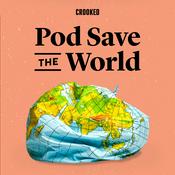350 Episoden
- In his epic cover story for The Atlantic this month, staff writer Josh Tyrangiel spoke to dozens of economists, workers, tech CEOs, and AI experts about the danger that artificial intelligence might pose to the labor force. Is AI developing the capacity to automate and even replace millions of white-collar jobs, as many technologists and some economists predict? Or is this a normal technology that, like previous generations of technology, will have a much slower effect on the workforce? We cover several scenarios before asking: Why does it seem like nobody in politics is paying close enough attention to this story?
Links: https://www.theatlantic.com/magazine/2026/03/ai-economy-labor-market-transformation/685731/
Subscribe to our YouTube channel here: https://www.youtube.com/@PlainEnglishwithDerekThompson
If you have questions, observations, or ideas for future episodes, email us at [email protected].
Host: Derek Thompson
Guest: Josh Tyrangiel
Producer: Devon Baroldi
Learn more about your ad choices. Visit podcastchoices.com/adchoices - Hello! I’m back from paternity leave just in time to talk about the biggest media earthquake of the year (so far): the Washington Post meltdown. For decades, the Post was a journalistic gem with superior coverage of politics. Last week, billionaire owner Jeff Bezos decided to gut roughly a third of the staff after the paper lost hundreds of millions of dollars in the last few years.
Today’s guest is Jim VandeHei, the cofounder of Politico and Axios and a former Post reporter. We talk about the decades-long rise and fall of the Post before zooming out to talk about the most important changes in news media over the past 20 years, the secret of 21st-century media success, and the coming storm of AI.
To read more about Derek’s opening comments on how the future of the news industry is going back to past, check out his Atlantic article on the subject here: https://www.theatlantic.com/ideas/archive/2018/12/post-advertising-future-media/578917/
Subscribe to our YouTube channel here: https://www.youtube.com/@PlainEnglishwithDerekThompson
If you have questions, observations, or ideas for future episodes, email us at [email protected].
Host: Derek Thompson
Guest: Jim VandeHei
Producer: Devon Baroldi
Learn more about your ad choices. Visit podcastchoices.com/adchoices - Throughout December and January, we’ve been re-airing some of our favorite episodes of the past year and beyond, and today's episode marks the end of our "best of" series for this year! This list includes interviews that really stuck with me and some others that you guys had tons of feedback and thoughts on … including this one!“What’s the Matter With America’s Food?” originally aired September 26, 2025.If you have questions, observations, or ideas for future episodes, email us at [email protected]: Derek ThompsonGuests: Julia Belluz and Kevin HallProducer: Devon Baroldi
Learn more about your ad choices. Visit podcastchoices.com/adchoices - Throughout December and January, we’re going to be re-airing some of our favorite episodes of the past year and beyond. This list includes interviews that really stuck with me and some others that you guys had tons of feedback and thoughts on … including this one!
“This Is How the AI Bubble Could Burst” originally aired September 23, 2025.
If you have questions, observations, or ideas for future episodes, email us at [email protected].
Host: Derek ThompsonGuest: Paul KedroskyProducer: Devon Baroldi
Learn more about your ad choices. Visit podcastchoices.com/adchoices Plain English BEST OF: The Healthiest "Super-Agers" Have One Thing in Common, According to a 25-Year Study
20.1.2026 | 41 Min.Throughout December and January, we’re going to be re-airing some of our favorite episodes of the past year and beyond. This list includes interviews that really stuck with me and some others that you guys had tons of feedback and thoughts on … including this one!
“The Healthiest "Super-Agers" Have One Thing in Common, According to a 25-Year Study” originally aired August 27th, 2025.
If you have questions, observations, or ideas for future episodes, email us at [email protected].
Host: Derek ThompsonGuest: Dr. Sandra WeintraubProducer: Devon Baroldi
Learn more about your ad choices. Visit podcastchoices.com/adchoices
Weitere Nachrichten Podcasts
Trending Nachrichten Podcasts
Über Plain English with Derek Thompson
Longtime Atlantic tech, culture and political writer Derek Thompson cuts through all the noise surrounding the big questions and headlines that matter to you in his new podcast Plain English. Watch Derek and guests engage the news with clear viewpoints and memorable takeaways. New episodes drop every Tuesday and Friday, and if you've got a topic you want discussed, shoot us an email at [email protected]! Subscribe to our YouTube channel here: https://www.youtube.com/@PlainEnglishwithDerekThompson
Podcast-WebsiteHöre Plain English with Derek Thompson, RONZHEIMER. und viele andere Podcasts aus aller Welt mit der radio.at-App
Hol dir die kostenlose radio.at App
- Sender und Podcasts favorisieren
- Streamen via Wifi oder Bluetooth
- Unterstützt Carplay & Android Auto
- viele weitere App Funktionen
Hol dir die kostenlose radio.at App
- Sender und Podcasts favorisieren
- Streamen via Wifi oder Bluetooth
- Unterstützt Carplay & Android Auto
- viele weitere App Funktionen

Plain English with Derek Thompson
Code scannen,
App laden,
loshören.
App laden,
loshören.




